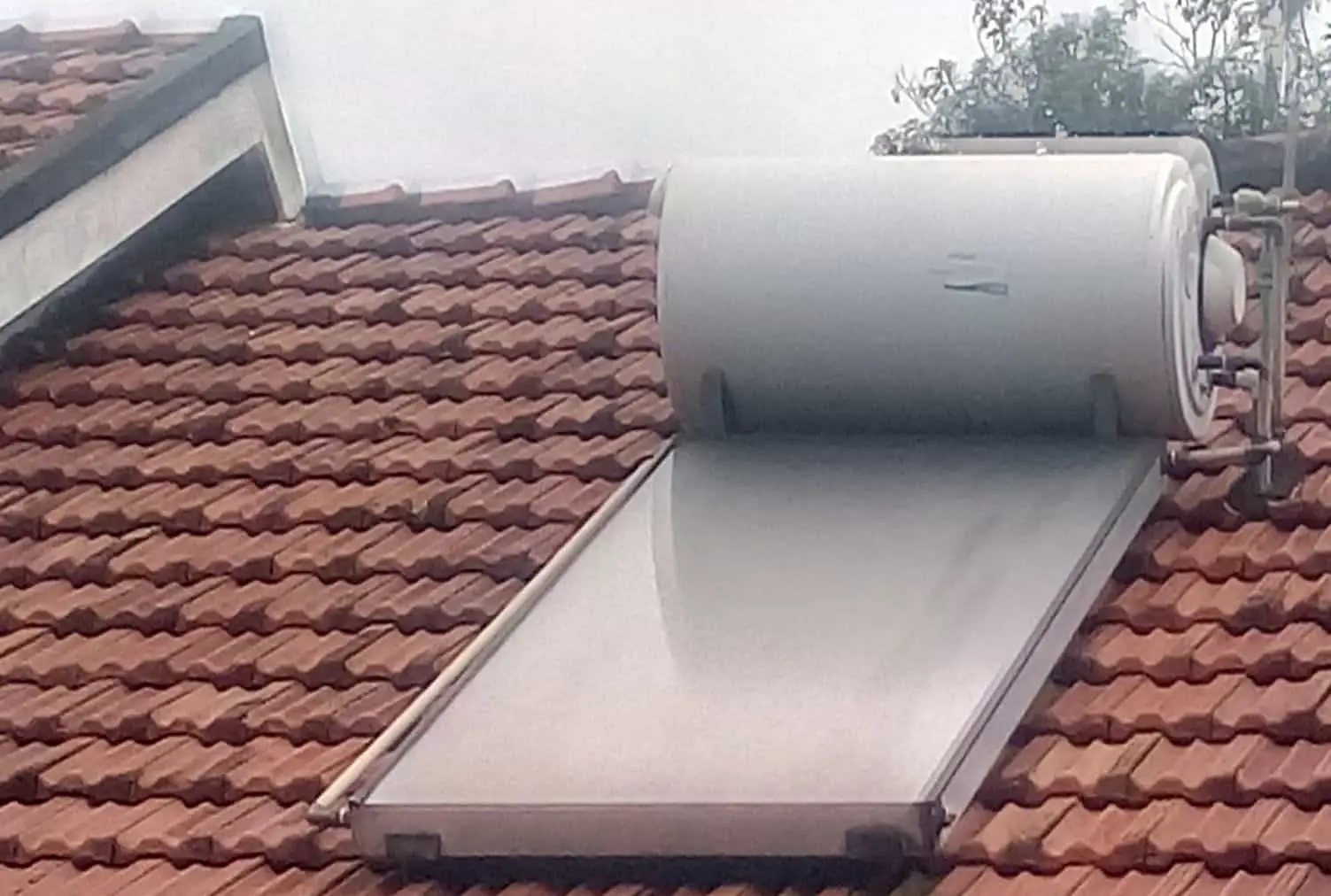There are several possible causes why your solar water heater may not produce hot water. Note, this assumes that your heater was properly installed and has recently stopped producing hot-water.
In this post, I will share with you my top tips to help you to fix the problem of no hot water from your solar water heater.
We are going to look at each of the likely scenarios that you may experience, possible causes and what you can do to fix each one of them.
Scenario #1: Water is flowing from your faucet but it is not hot
This can be caused by your solar water heater panels are not heating the water and in case you have a backup electric heater connected, it is not functional.
The likely causes of the solar water panels not heating water may be:
- For the case of the evacuated tube water heaters, it is still set to vacation mode – the opaque side of the evacuated tubes is facing the sky.
It is recommended that the tubes are turned such that no heating takes place when you are away.
- the heating panels are covered by snow
- the backup electric heater is not connected, not working properly or thermostat settings not set correctly (set too high)
To fix this, if using an evacuated solar water type, ensure that the opaque side of the tubes is facing down ( the roof).
Clear any snow or debris that may be covering the heater panel performance. Check out our guide on how to clean solar water tubes and panels.
Lastly, confirm that the backup electric heater for the solar system is functional and connected.
Scenario #2: You have hot-water from the faucet but it flows for a short-time
The may be caused by:
- insufficient heating by the solar water heater panels because of unfavorable weather. Examples of this weather
are cloudy, rainy weather, winter weather.
To resolve the problem of hot-water flowing for a short-time,
- If you can clear any snow or soiling from the panels safely, do it.
- Always have an alternative water heating source to supplement your solar water heater. This could be an electric or gas-powered heater.
- Consider using evacuated tube water heaters instead of the flat-panel water heaters if aesthetics is not an issue for you.
The former perform much better during cloudy, rainy weather.
Scenario #3: Hot-water from the solar water heater flowing for a short-time
This may be caused by:
- overuse of the solar water heater water or poorly performing water heater.
If not connected already, consider installing or connecting a backup water heater element to heat the water should the water temperatures be lower than desired.
- soiled panels or obstacles casting shadows on the heating panels.
To fix this:
- clean the solar water heater panels to remove any soiling.
- Remove any obstacles such as tree branches that may be casting shadows on the solar water heater panels.
Scenario #4. You have no water (whether hot or cold) flowing from the faucet.
This may be caused by:
- shortage of water from the municipal supply. Several solar water heater systems rely on the water pressure from the municipal in order for any water to flow through the faucet.
Therefore confirm that you have municipal water supply available
- inlet and outlet valves of the solar water heater in the closed position affecting hot water flow.
Check that both valves are open.
- Airlock in the solar water heater line affecting water flow through the faucet
Scenario # 4: You could have a damaged solar water heater
This is generally unlikely though and good quality solar water systems have been known to last for more than 15 years. Potential areas of damage may be a damaged tank, panel possibly resulting from high water pressure or impact on either system.
Should this the case, consider replacing the damaged system – tank or solar panel or buying a complete set altogether.
All in all, should your solar water heater system produce hot water for a short-time or none at all, check and ensure that solar heaters panels have direct an obstructed sunlight as possible.
If you are experiencing unfavorable weather, consider a backup electric heater or using an evacuated tube water heater for improved performance.
Lastly, check that the inlet and outlet valves for the heater are not shut-off and that your solar water heater has not suffered any damage.
Related Topics
